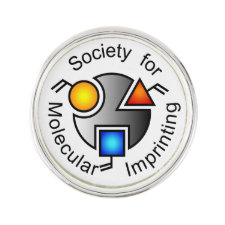
Authors: Zhu LL, Chen LR, Xu XJ
Article Title: Application of a molecularly imprinted polymer for the effective recognition of different anti-epidermal growth factor receptor inhibitors.
Publication date: 2003
Journal: Analytical Chemistry
Volume: 75
Issue: (23)
Page numbers: 6381-6387.
DOI: 10.1021/ac026371a
Alternative URL: http://www.chem.umb.edu/Chemistry/CH361/MIP.pdf
Abstract: A molecularly imprinted polymer (MIP) was prepared using (E)- piceatannol, a natural potential anti-epidermal growth factor receptor (EGFR) inhibitor, as the template and 4-vinylpyridine as the functional monomer. The template was isolated from a Chinese traditional Tibetan medicinal herb, Caragana jubata, by a solid-phase extraction procedure. The crude extract of this herb was loaded on the MIP column for the binding test, and two different compounds besides the template itself were specifically recognized by the polymer, which were identified to be butein and quercetin possessing potent anti-EGFR tyrosine kinase activities with IC50 values of 10 and 15 muM, respectively. Affinity and selectivity for these inhibitors and another three compounds coexisting with the template in this herb were evaluated in the chromatographic mode. For the first time, the affinity of a molecularly imprinted polymer was investigated to be correlative to the bioactivities of the analytes. The chromatographic behavior of the analytes was consistent with their activity values: the more active inhibitor was retained longer on the MIP. This research work afforded us a new approach for the effective recognition of novel anti-EGFR inhibitors from herbs by using the MIP as the receptor mimic to assay the bioactivities of reserved components, which will be very helpful in the direct separation of lead candidates for anticancer drugs



Join the Society for Molecular Imprinting

New items RSS feed
Sign-up for e-mail updates:
Choose between receiving an occasional newsletter or more frequent e-mail alerts.
Click here to go to the sign-up page.
Is your name elemental or peptidic? Enter your name and find out by clicking either of the buttons below!
Other products you may like:
 MIPdatabase
MIPdatabase









